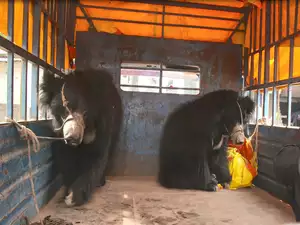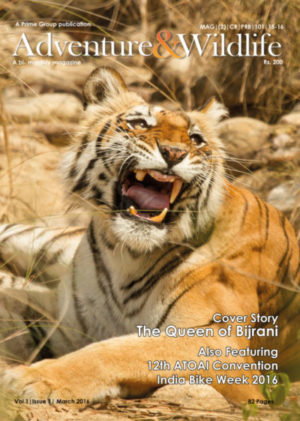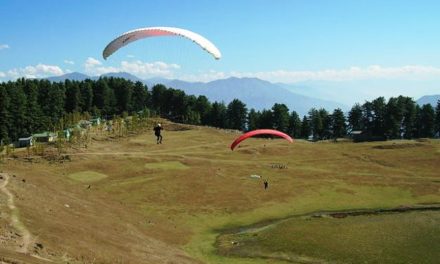
Nepal’s last known dancing bears rescued

KATHMANDU: Nepali authorities have rescued the country’s last known “dancing bears”, officials said on Sunday, ending the medieval tradition of abuse of the beasts for entertainment.
The Himalayan nation banned performing bears back in 1973 but the illegal practice- a traditional occupation for some street performer communities, lingered on in parts of its southern region.
Police and animal charities said they spent more than a year hunting the captors of the sloth bears before they were traced to the Rautahat district near the border with India on Tuesday.
“We received information that they were in our area and managed to rescue the bears,” district police chief Yagya Binod Pokharel told AFP.
Dancing bears are captured and bought as cubs and taught to dance on their hind legs. Their snouts are pierced with a heated rod so they can be controlled by the tug of a rope or chain.
Animal activists said the rescued bears — 19-year-old male Rangila and Sridevi, a 17-year-old female, showed signs of trauma such as cowering, pacing and paw-sucking.
“We are thrilled that the last two known Nepali dancing bears have been rescued from their lifetime of suffering… our hard effort and dedication has helped to bring an end to this illegal tradition in Nepal,” said Manoj Gautam of the Jane Goodall Institute of Nepal, which worked with the police and World Animal Protection to rescue them.
The bears are being cared for by the Parsa Wildlife Reserve, Nepal’s largest such reserve.
Dancing bears on the Indian subcontinent dates back to the 13th century, when trainers belonging to the Muslim Qalandar tribe enjoyed royal patronage and performed before the rich and powerful.
Sloth bears, a critically endangered species, are found in India, Nepal, Sri Lanka and Bhutan. But shrinking habitats and rampant poaching have reduced their numbers, according to the International Union for Conservation of Nature (IUCN).
They can grow up to 1.8 metres tall and weigh up to 140 kilograms.












